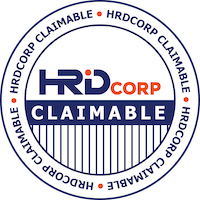SQLAlchemy Mastery: Database Interaction & ORM in Python
Master the art of database interaction with our comprehensive SQLAlchemy training program. Learn from industry experts as you delve into core concepts and advanced features of SQLAlchemy. Gain practical skills in managing databases efficiently using both Core and ORM techniques. Enroll now to elevate your Python programming expertise.
- Available in:
- Malaysia

Corporate Pricing
Pax:
Training Provider Pricing
Pax:
Features
Subsidies

What you'll learn
- Master performing basic SQL operations: INSERT, SELECT, UPDATE, DELETE.
- Manage connections and sessions effectively.
- Learn how to create and manage tables using SQLAlchemy Core.
- Establish relationships between tables using SQLAlchemy ORM.
- Understand the differences between SQLAlchemy Core and ORM.
- Define ORM models and map classes to database tables.
- Construct complex queries with filtering, ordering, grouping.
- Implement database migrations and schema management using Alembic.
Why should you attend?
SQLAlchemy is a powerful library in Python that facilitates database interaction and object-relational mapping (ORM). This course provides an in-depth exploration of SQLAlchemy, starting with an introduction to its core components and ORM capabilities. Participants will learn how to install and set up SQLAlchemy, ensuring they have the necessary environment to follow along with the course material. The course delves into database interaction using SQLAlchemy Core, covering the basics of SQL queries, table creation and management, and performing essential SQL operations such as INSERT, SELECT, UPDATE, and DELETE. Following this, learners will transition to working with SQLAlchemy ORM, where they will define ORM models, map classes to database tables, and establish relationships between tables. Managing database sessions and transactions is another critical aspect covered in this course. Participants will gain insights into managing connections and sessions effectively, handling transactions through commit, rollback, and savepoint mechanisms. The course also emphasizes querying data using ORM techniques, handling relationships through joins and loading strategies, and constructing complex queries with filtering, ordering, and grouping. Advanced ORM features are explored to optimize performance further. Topics include defining inheritance in ORM models, optimizing queries with indexes, efficient pagination of large datasets, and implementing connection pooling and scaling strategies. Finally, the course addresses database migrations and schema management using Alembic. Learners will automate schema changes and handle version control for database schemas efficiently.
Course Syllabus
Day 1
Short Break
15 minsShort Break
15 minsRecap and Q&A
15 minsLunch
1 hourShort Break
15 minsShort Break
15 minsShort Break
15 minsRecap and Q&A
15 minsEnd of Day 1
Ratings and Reviews
Instructor
Mohammad Mehdi Lotfinejad is an accomplished Chief Data Officer and certified HRDF trainer with over 15 years of experience in computer science instruction and professional data science/engineering training. He combines extensive academic credentials with deep industry expertise, holding a PhD in Computer Science from Universiti Malaya and Harvard Business School certification in Business Analytics. His comprehensive technical background spans Apache Spark, MySQL, PostgreSQL, MongoDB, Snowflake, Redshift, Apache Airflow, API development, microservices, and Amazon Web Services. Currently serving as Chief Data and Knowledge Officer at Magna.ai, a Florida-based lawtech company, Lotfinejad leads the development of AI-driven legal case analysis systems, architecting graph databases, data warehouses, and workflow engines while ensuring compliance with legal standards. His concurrent role as Senior Data Engineer at AXIATA Digital Advertising (ADA) in Malaysia demonstrates his ability to manage complex, multi-regional data operations across Southeast Asian markets, designing automated pipelines using AWS RedShift, Snowflake, and Google BigQuery. His training expertise was honed during his tenure as Lead Senior Data Scientist Professional Trainer at The Center of Applied Data Science, where he designed and delivered comprehensive training programs for major corporations including CIMB, PETRONAS, SHELL, and TNB. He successfully led teams of data scientists and engineers in developing cutting-edge curriculum and migrating legacy systems to modern data management solutions. His academic foundation includes faculty positions at multiple universities where he taught computer architecture, programming languages, software engineering, and data structures while publishing numerous high-impact research papers and books. Lotfinejad's unique combination of technical leadership, educational expertise, and industry experience makes him exceptionally qualified to deliver sophisticated software training programs. His proven track record of leading cross-functional teams, developing enterprise-level solutions, and translating complex technical concepts into accessible learning materials positions him as an ideal trainer for organizations seeking to advance their technical capabilities in data science, engineering, and modern software development practices.'
Minimum Qualification
Target Audience
Methodologies
Instructor Reviews
Mehdi and I worked on several projects with company such as Petronas , Shell and CIMB Regional ETC. I must say Mehdi's training was highly appreciated by our clients as he was able to exhibit in full display his vast knowledge as a Data professional. I would highly recommend him to anyone looking for a top tier training expert.
Not only knowledgeable but also having hands dirty on what he knows Friendly and building networks quickly.
I had the pleasure of working with Mehdi together on some high-level initiatives such as the Petronas data scientist program and Shell's project to become a data-driven organization. During these projects, Mehdi received numerous accolades for his ability to share his knowledge and mentor up-and-coming data scientists. Based on our shared experiences, I have no hesitation in recommending Mehdi for any project or position he may be considered for.
FAQs
- Public pricing: applies for individuals signing up from different companies.
- Corporate pricing: applies if a company wants to have an intake for its employees only.
- Training provider pricing: applies only for other training providers looking to hire our trainers and use our content. Our content has a licensing fee.
We will keep you updated on the status of the intake after you enroll.
Courses you may like
Why should you attend?
SQLAlchemy is a powerful library in Python that facilitates database interaction and object-relational mapping (ORM). This course provides an in-depth exploration of SQLAlchemy, starting with an introduction to its core components and ORM capabilities. Participants will learn how to install and set up SQLAlchemy, ensuring they have the necessary environment to follow along with the course material. The course delves into database interaction using SQLAlchemy Core, covering the basics of SQL queries, table creation and management, and performing essential SQL operations such as INSERT, SELECT, UPDATE, and DELETE. Following this, learners will transition to working with SQLAlchemy ORM, where they will define ORM models, map classes to database tables, and establish relationships between tables. Managing database sessions and transactions is another critical aspect covered in this course. Participants will gain insights into managing connections and sessions effectively, handling transactions through commit, rollback, and savepoint mechanisms. The course also emphasizes querying data using ORM techniques, handling relationships through joins and loading strategies, and constructing complex queries with filtering, ordering, and grouping. Advanced ORM features are explored to optimize performance further. Topics include defining inheritance in ORM models, optimizing queries with indexes, efficient pagination of large datasets, and implementing connection pooling and scaling strategies. Finally, the course addresses database migrations and schema management using Alembic. Learners will automate schema changes and handle version control for database schemas efficiently.
What you'll learn
- Master performing basic SQL operations: INSERT, SELECT, UPDATE, DELETE.
- Manage connections and sessions effectively.
- Learn how to create and manage tables using SQLAlchemy Core.
- Establish relationships between tables using SQLAlchemy ORM.
- Understand the differences between SQLAlchemy Core and ORM.
- Define ORM models and map classes to database tables.
- Construct complex queries with filtering, ordering, grouping.
- Implement database migrations and schema management using Alembic.
Course Syllabus
Day 1
Short Break
15 minsShort Break
15 minsRecap and Q&A
15 minsLunch
1 hourShort Break
15 minsShort Break
15 minsShort Break
15 minsRecap and Q&A
15 minsEnd of Day 1
Instructor Reviews
Mehdi and I worked on several projects with company such as Petronas , Shell and CIMB Regional ETC. I must say Mehdi's training was highly appreciated by our clients as he was able to exhibit in full display his vast knowledge as a Data professional. I would highly recommend him to anyone looking for a top tier training expert.
Not only knowledgeable but also having hands dirty on what he knows Friendly and building networks quickly.
I had the pleasure of working with Mehdi together on some high-level initiatives such as the Petronas data scientist program and Shell's project to become a data-driven organization. During these projects, Mehdi received numerous accolades for his ability to share his knowledge and mentor up-and-coming data scientists. Based on our shared experiences, I have no hesitation in recommending Mehdi for any project or position he may be considered for.
Corporate Pricing
Pax:
Training Provider Pricing
Pax:
Features
Subsidies

Ratings and Reviews
Instructor
Mohammad Mehdi Lotfinejad is an accomplished Chief Data Officer and certified HRDF trainer with over 15 years of experience in computer science instruction and professional data science/engineering training. He combines extensive academic credentials with deep industry expertise, holding a PhD in Computer Science from Universiti Malaya and Harvard Business School certification in Business Analytics. His comprehensive technical background spans Apache Spark, MySQL, PostgreSQL, MongoDB, Snowflake, Redshift, Apache Airflow, API development, microservices, and Amazon Web Services. Currently serving as Chief Data and Knowledge Officer at Magna.ai, a Florida-based lawtech company, Lotfinejad leads the development of AI-driven legal case analysis systems, architecting graph databases, data warehouses, and workflow engines while ensuring compliance with legal standards. His concurrent role as Senior Data Engineer at AXIATA Digital Advertising (ADA) in Malaysia demonstrates his ability to manage complex, multi-regional data operations across Southeast Asian markets, designing automated pipelines using AWS RedShift, Snowflake, and Google BigQuery. His training expertise was honed during his tenure as Lead Senior Data Scientist Professional Trainer at The Center of Applied Data Science, where he designed and delivered comprehensive training programs for major corporations including CIMB, PETRONAS, SHELL, and TNB. He successfully led teams of data scientists and engineers in developing cutting-edge curriculum and migrating legacy systems to modern data management solutions. His academic foundation includes faculty positions at multiple universities where he taught computer architecture, programming languages, software engineering, and data structures while publishing numerous high-impact research papers and books. Lotfinejad's unique combination of technical leadership, educational expertise, and industry experience makes him exceptionally qualified to deliver sophisticated software training programs. His proven track record of leading cross-functional teams, developing enterprise-level solutions, and translating complex technical concepts into accessible learning materials positions him as an ideal trainer for organizations seeking to advance their technical capabilities in data science, engineering, and modern software development practices.'
Minimum Qualification
Target Audience
Methodologies
FAQs
- Public pricing: applies for individuals signing up from different companies.
- Corporate pricing: applies if a company wants to have an intake for its employees only.
- Training provider pricing: applies only for other training providers looking to hire our trainers and use our content. Our content has a licensing fee.
We will keep you updated on the status of the intake after you enroll.
Courses you may like
Our Offers

Become a Trainer
Teach what you love. Abundent Academy gives you the tools you need to run your own trainings! We provide you with the platform, the students, the materials, and the support you need to succeed!
- Higher trainer payouts
- Ready-made course materials
- Student management system
- AI digital marketing assistant

Academy for Business
Get unlimited access to all of Abundent Academy's carefully curated courses for your team, all organized according to job category and role! Perfect for companies looking to upskill their workforce and stay ahead in the tech industry.
- Carefully curated courses
- Role-based learning paths
- Team progress tracking
- Gap Identification and Analysis
Top companies choose Academy for Business







